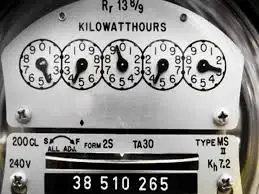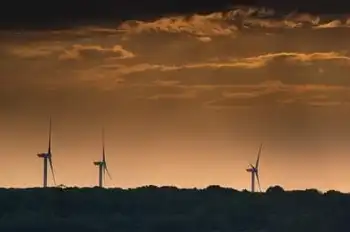Industry weighs various greenhouse gas options
By Toronto Star
Arc Flash Training CSA Z462 - Electrical Safety Essentials
Our customized live online or in‑person group training can be delivered to your staff at your location.

- Live Online
- 6 hours Instructor-led
- Group Training Available
The paper is the conclusion of intense consultations led by key cabinet ministers over the past two months.
Oil and gas industry sources say that Indian Affairs Minister Jim Prentice, chairman of the cabinet's environment and energy committee, has put serious muscle into the talks to get results before the federal budget is tabled on March 19.
The government is expected to tell a list of major industries, from electricity generation to mining, that reduction targets will kick into gear in 2010.
The targets will not be hard caps demanded by environmentalists and the NDP, but rather will be based on an industry's output from year to year – often referred to as intensity-based targets. The Liberals proposed similar targets in 2005, but the Conservative paper is expected to require slightly deeper reductions.
"They don't intend to go into an extensive consultation afterward," said one source. "They want to hear from people if they got something wrong, but otherwise they want to move into a formal regulatory process, with a few details to be worked out later."
One piece of unfinished business is the cost per tonne of emissions, which must be established before any offsetting or trading mechanisms can work.
At the core of the policy paper is a package of industry options – also referred to as alternative compliance mechanisms – for how they will meet their obligations.
Sources who took part in the consultations with Prentice and other officials say there are three main options on the table: contributions by polluters to a technology fund; offsetting environment credits for good deeds in other areas; and emissions trading.
In addition to – or instead of – absolute cuts in greenhouse gas emissions, polluters might use a combination of these mechanisms to meet their targets.
A climate change technology fund primed by polluters is one expected announcement.
Industries could access the fund to do major research on cutting emissions and developing cleaner fuel sources. Insiders say its not yet clear how the fund will be administered, but point to existing arms-length groups, such as the non-governmental organization Sustainable Development Technology Canada, as potential managers.
Some industries – and the provinces – are insisting that the fund be distributed in proportion to the amount received from each region of the country. Hence, if a large chunk of the money comes from Alberta, new research projects should be based there.
Another option for industry will be purchasing offset credits. That system permits a particular sector to spend money cleaning up another aspect of the environment – planting trees or cleaning up a river, for example – in order to get credit on their emissions reduction targets. Insiders say this is the least controversial proposal, and one where there is a fair amount of consensus among industry players. Still, such a credit system would require some sort of agency to ensure accountability.
The last option – and the hardest for government to pin down – is some form of domestic emissions trading scheme.
Sources who took part in the consultations say there's still a raging debate over whether such a system could survive if it was only contained within Canada, or whether it must at least encompass all of North America to work.
The Conservatives have said repeatedly they are opposed to putting taxpayer funds into an international carbon trading system.
A source from the oil and gas industry said the government has sent out a clear signal that it is moving full steam ahead.
"The government has been fairly open in the range of options they're still looking at, and they're hauling people in and looking them in the eye and asking them, `What doesn't work for you, and what does?'"
And industry players are worried about the timing for tabling of the policy paper, potentially days before the federal budget and close to the Quebec election day.
"What worries me most is a climate change announcement is going to be skewed towards buying Quebec votes," said one source.











